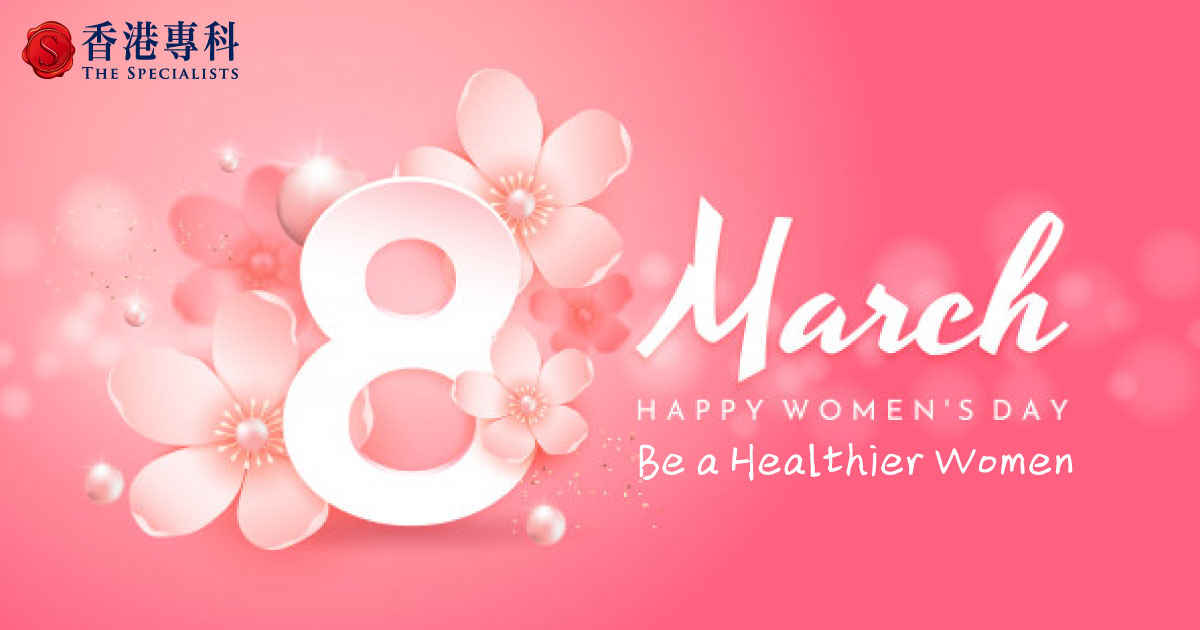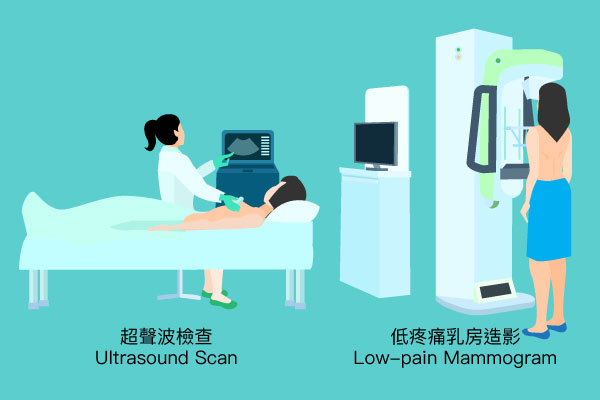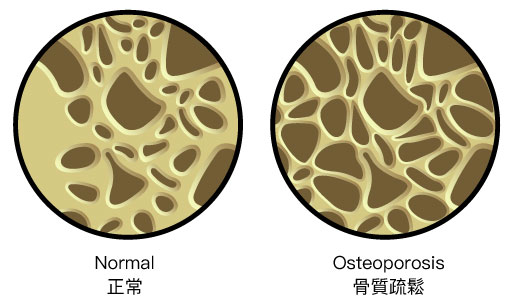International Women’s Day: Be a Healthier Women

International Women's Day is celebrated on the 8th of March every year around the world. It is a focal point in the movement for women's rights. We celebrate the festival today all over the world and recognise the critical contribution that women play in achieving the economic development, political and social stability.
Women face different health challenges in their life stages. Taking good care of yourself and keeping healthy is both important to you and to someone who loves you.
Aged between 20 and 29 years old: Menstrual problems and Cervical screening
Young women may have concerns about their menstrual cycle, cyclical premenstrual discomforts or menstrual disorders. For women aged 25 or above who have ever had sexual intercourse may need a cervical screening test to reduce the chance of contracting sexually transmitted diseases and developing cervical cancer.

Aged between 30 and 39 years old: Breast awareness and Gynaecological Exams
Women aged 30 or above should have regular exams of their breast so that any changes can be identified early. If any unusual breast changes or breast lumps are detected, patients should see a specialist at the earliest. Some diseases such as inflammatory vaginitis, cervicitis, and Pelvic Inflammatory Disease (PID) are become common among young women. So regular gynaecological exams and pelvic ultrasound are recommended as an effective modality for accurate and timely diagnosis for certain diseases.

Aged between 40 and 49 years old: Manage hormones
At age 40, a woman may begin to notice her life is changing as her body changes along with it. She is feeling no longer young as before. After 45 years old, many women may experience sleep disorders, night sweats, palpitations and urinary tract infections. Patients with any persistent symptoms above are encouraged to see a doctor for a further examination. Husbands should support your partner by learning about menopause, exercising patience with her during this special period.
Aged between 50 and 59 years old: Manage hormones
Women aged 50 or above are more likely to have blood pressure, high cholesterol which are associated with an elevated risk of cardiovascular disease. If any of these diseases are diagnosed during a physical examination, patients might need a continuous follow-up plan. Besides, menopause speeds bone loss and increases the risk for osteoporosis. The inadequate intake of calcium, magnesium, vitamin D, and lack of physical activity can lead to the osteoporosis. It is important for family members to help a person with a mobility disability who are at higher risk for osteoporosis fractures than others.

Aged 60 years old and above: Comprehensive health screening and mental wellness
After 60, most women will no longer need to work in a fast pace environment, have less anxiety for their children and they may even have their grandchildren. It is time to pay much attention to their health and enjoy their retirement. A wise way is to do regular health check which can help to detect potentially life-threatening health conditions or diseases early.
Adult children should give care to their parents’ mental health. Mental illness is common among the elder women, including mother and grandmother. To avoid getting bored in retirement, the seniors are encouraged to travel together, to be a community volunteer, and to go hiking and so on. Doing exercises is a good way to lift the mood and slow down the aging process.
International Women's Day is a great day to acknowledge every woman’s contributions. She plays different and many roles in society. She is a mother, a wife, a sister, and a daughter. We appreciate for all that they do for us and we wish them always happy, healthy and beautiful!
*The above information is for reference only, please consult your doctor for detail.

 3405 8288
3405 8288
